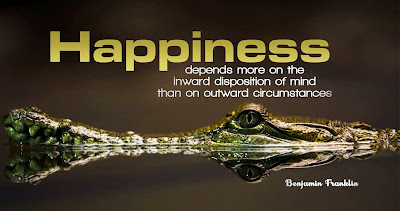(On the anniversary of his death, a few thoughts from a philosophical giant-By Jesse Carey)November 11, 2014
---------------------------------------------
On November 11, in 1855, philosopher and theologian Søren Kierkegaard
died at the age of just 42 years old. Even though he lived a relatively
short life, his writings on faith, the Church, ethics and the nature of
God have gone on to have a profound influence on Western Culture and the
legions of Christian thinkers who’ve encountered them ever since.
Here’s a look back at some of Kierkegaard's most powerful quotes.
----------------------------------------------------------
(1)On Observing Scripture
The Bible is very easy to understand. But we Christians are a bunch of
scheming swindlers. We pretend to be unable to understand it because we
know very well that the minute we understand, we are obliged to act
accordingly.
― Provocations: Spiritual Writings of Kierkegaard
(2)On Purpose and Potential
If I were to wish for anything, I should not wish for wealth and power,
but for the passionate sense of the potential, for the eye which, ever
young and ardent, sees the possible. Pleasure disappoints, possibility
never. And what wine is so sparkling, what so fragrant, what so
intoxicating as possibility!
― Either/Or: A Fragment of Life
(3)On a Loving God
It is really remarkable that while all the other attributes ascribed to
God are adjectives, “Love” alone is a substantive, and it would
scarcely occur to one to make the mistake of saying: “God is lovely.”
Thus, language itself has given expression to the substantial element
that is found in this attribute.
― The Journals of Kierkegaard
(4)On Dying for What You Believe
The tyrant dies and his rule is over, the martyr dies and his rule begins.
― The Journals of Kierkegaard
(5)On Being Christlike
Present-day Christendom really lives as if the situation were as
follows: Christ is the great hero and benefactor who has once and for
all secured salvation for us; now we must merely be happy and delighted
with the innocent goods of earthly life and leave the rest to Him. But
Christ is essentially the exemplar, that is we are to resemble Him, not
mere profit from Him.
― The Journals of Søren Kierkegaard
(6)On Salvation
God creates out of nothing. Wonderful you say. Yes, to be sure, but he
does what is still more wonderful: He makes saints out of sinners.
― The Journals of Kierkegaard
(7)On Pride
The proud person always wants to do the right thing, the great thing.
But because he wants to do it in his own strength, he is fighting not
with man, but with God.
― Provocations: Spiritual Writings of Kierkegaard
(8)On Faith
And this is one of the most crucial definitions for the whole of
Christianity; that the opposite of sin is not virtue but faith.
― Søren Kierkegaard, The Sickness Unto Death
(9)On Challenges
The task must be made difficult, for only the difficult inspires the noble-hearted.
― The Journals of Kierkegaard
(10)On Obedience to God
This much is certain: The greatest thing each person can is to give
himself to God utterly and unconditionally—weakness, fears, and all. For
God love obedience more than good intentions or second-best offerings,
which are all too often made under the guide of weakness.
― Provocations: Spiritual Writings of Kierkegaard
(11)On Legacy
What the age needs is not a genius—it has had geniuses enough, but a
martyr, who in order to teach men to obey would himself be obedient unto
death. What the age needs is awakening. And therefore someday, not only
my writings but my whole life, all the intriguing mystery of the
machine will be studied and studied. I never forget how God helps me and
it is therefore my last wish that everything may be to His honour.
― The Journals of Søren Kierkegaard
(12)On Truth
The truth is a trap: you cannot get it without it getting you; you
cannot get the truth by capturing it, only by its capturing you.
― The Journals of Søren Kierkegaard
(13)On Forgiveness
Never cease loving a person, and never give up hope for him, for even
the prodigal son who had fallen most low, could still be saved; the
bitterest enemy and also he who was your friend could again be your
friend; love that has grown cold can kindle.
― Referenced in The Westminster Collection of Christian Quotations
(14)On the Virtue of Faith
Faith is the highest passion in a human being. Many in every generation may not come that far, but none comes further.
― Fear and Trembling
(15)On Christ’s Atonement
What precisely is profound in Christianity is that Christ is both our
atoner and our judge, not that one is our atoner and another our judge,
for then we would nevertheless come to be judged, but that the atoner
and the judge are the same.
― The Journals of Søren Kierkegaard
------------------------------------------------------
Read more at
http://www.relevantmagazine.com/…/15-soren-kierkegaards-mos…




































